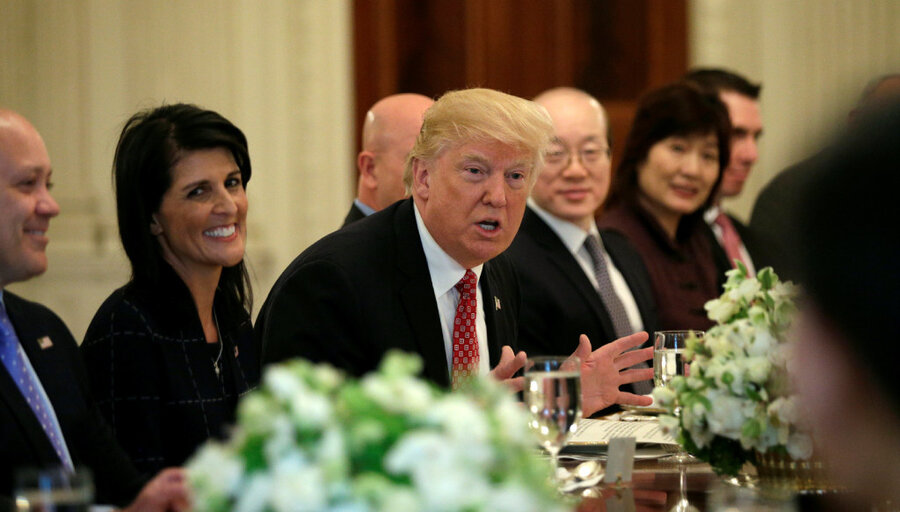Trump’s possible logic on North Korea
Loading...
One reason individuals support their police is so they don’t have to own a gun. Police are the preferred night watchmen of safety. Yet if some neighbors start to buy guns, the police look less reliable. And more people then buy guns. That same logic may be at play in Northeast Asia.
As North Korea moves to own more nuclear weapons and missiles, will Japan and South Korea seek nuclear weapons rather than rely on the United States – as the preferred cop on the beat – with its deterrence threat of nuclear retaliation?
For decades, many allies of the US have trusted its nuclear “umbrella” enough not to develop their own atomic arsenal. This has helped curb the proliferation of nuclear weapons, helping to keep the world safe from a devastating type of warfare. But the North Korea crisis could change this key aspect of the global order. If a major country like Japan, despite its deep and constitutional commitment to pacifism, ever feels the need to go nuclear, what will stop other countries from doing the same?
It is in this moral context that the world must watch what President Trump, along with China, is doing about North Korea’s nuclear ambitions.
Despite Mr. Trump’s rhetoric about “America first” and his mixed signals about honoring defense commitments to allies, he so far seems engaged in finding ways to restrain North Korea. He attended a White House briefing of all 100 US senators on North Korea in an unusual summit on Wednesday, April 26. And he met with United Nations Security Council members on Monday.
“Whether we want to talk about it or not, North Korea is a big-world problem, and it’s a problem we have to finally solve,” he said. That is not the rhetoric of someone who believes in retrenchment from America’s unique role in nuclear deterrence.
Among all Americans, Trump has the strongest backing from his core supporters in dealing with this issue. According to a 2016 survey by the Chicago Council on Foreign Relations, 68 percent of those supporters see a “critical threat” in the possibility of unfriendly countries becoming nuclear powers. That percentage is higher than for Republicans in general and Democrats. And their strong support is in contrast to their lukewarm support – only 51 percent – for the US to take an active role in world affairs.
Trump’s real strategy toward North Korea remains uncertain. He has suggested negotiations, putting pressure on China, and beefing up missile defenses in the region. And his aides say a military strike on the North’s nuclear facilities is one option. “I don’t have to tell you what I’m going to do in North Korea,” he says. “You know why? Because they shouldn’t know.”
At the least, however, he is engaged, holding fast to a logic that nuclear proliferation is not a moral course for the world.







